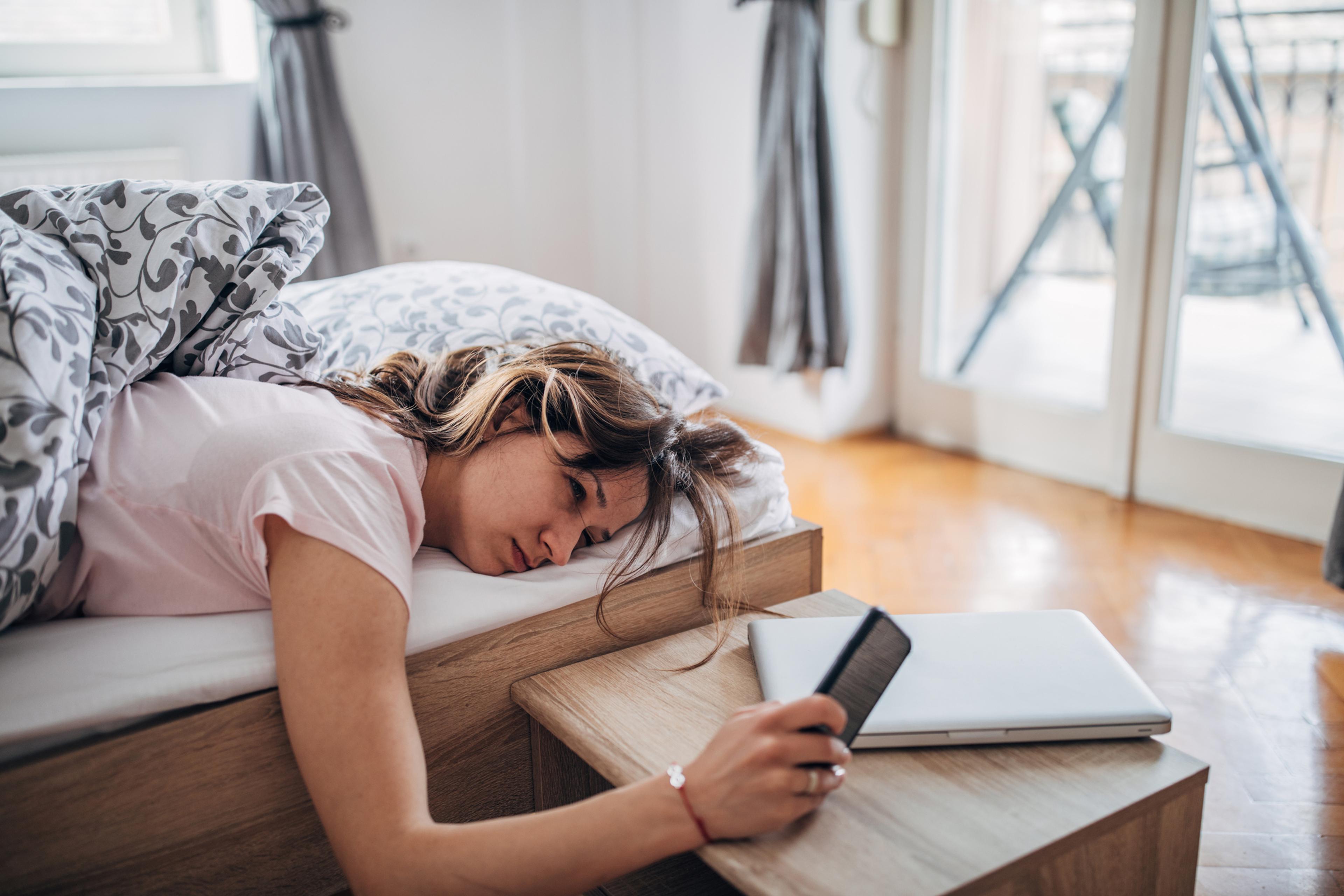What Does it Feel Like to Have a Panic Attack?

Monica Drake
| 5 min read

While a mental illness is called “mental,” that doesn’t mean it doesn’t come with some very physical symptoms.
Just like any other illness, mental illness comes with very real symptoms, some that can even be confused from other ailments and sickness. That’s why it boggles my mind that some people still hold this myth about mental illness – that it’s a weakness and you can just “snap out of it” if you try hard enough.
Did you know that about 25% of people who visit emergency rooms because of chest pain are actually experiencing a panic attack, according to MedicineNet? How can you tell someone to just get over that? The symptoms feel so physical that sometimes people don’t even realize they are experiencing a mental health condition.
Many of the symptoms of a panic attack are actually similar to a heart attack, such as chest pain, rapid heartbeat and shortness of breath. For me, I have generalized anxiety and panic disorder, and there have been plenty of times when I couldn’t tell if I was experiencing anxiety or if I was getting sick.
I remember, a few years ago, during a busy day at work, my face suddenly started burning up, and I felt dizzy and nauseous. At the time, I thought the flu had suddenly hit me, and I thought to myself, “Ugh! I don’t have time to get sick right now!” But then, when these symptoms started to fade, I realized, “Oh! Ha! I wasn’t getting sick – I was having a panic attack!”
Some other common symptoms of a panic attack include hot flashes or chills, nausea, lightheadedness, shortness of breath/difficulty breathing, not feeling in control, sudden fear of dying, and being detached from yourself and your surroundings. For me, I usually feel an intense pain in the center of my chest, and it feels like I’m getting less oxygen to my brain, as if I’m being strangled.
During a panic attack, sometimes I start crying uncontrollably and hyperventilating, or I’ll get nervous ticks, like rubbing my chest or wringing my hands. Negative thoughts will often run through my brain as if they’re coming from someone else – that I’m an awful, ugly, worthless person that no one could ever love and that the world would be better off without me.
And you know what will, without fail, always make the panic attack worse? When I tell myself to “just get over it” or “just calm down.” That always makes it worse. Instead, I need to tell myself, “These have happened before and you’ve made it through. You’re going to make it through this time too, just like you always have.”
What are some other things you can do to when you’re having a panic or anxiety attack? First, prepare by talking to your health care provider or your therapist about your symptoms. They may recommend treatment options to follow.
Here are some things I do when I’m experiencing anxiety or a panic attack to help ease the symptoms:
- For me, the thing that helps the most is taking my Xanax whenever I feel a panic attack coming on. For those who are undiagnosed and your anxiety is affecting your everyday life, see your primary care doctor or a mental health professional.
- Spend time writing or journaling. No, my handwriting doesn’t have to be legible or grammatically correct. Often, I will just write in a stream of consciousness, and this will help me identify how I’m feeling.
- Watch a TV show or movie I find comforting and distracting. For me, I can’t watch something I haven’t seen before when I’m feeling anxious or having a panic attack. That’s because it’s hard to concentrate and because I need to watch something I know I’ll love. You know what makes anxiety worse – watching a movie that you end up hating!
- Go for a walk outside and listen to upbeat music. The fresh air will often help me feel better, and the music will help drown out the thoughts in my head. And you don’t have to just listen to upbeat, happy music either. Sometimes, listening to angry punk or metal music and screaming into a pillow does wonders too.
- I try to take a nap. There have been times when I’ve taken a half an hour nap and when I wake up, I feel so much better. I know that sometimes the symptoms are so intense that you won’t be able to do this one. But it can be beneficial just to lay down when you’re having a panic attack and spend time focusing on your breathing. This can help reset your brain.
- Remind myself that I’m not alone and that all of the things my anxiety is telling you aren’t true.
I found this advice by Greg Weber, author of Healthy Place’s Treating Anxiety Blog, to be extremely helpful – to maintain the perspective that this feeling will pass and to be patient with yourself.
“I didn’t wake up one day and decide that acquiring generalized anxiety disorder sounded like a good idea. It’s a disease, and the worst thing about it is it tells me I don’t have a disease, but that I’m just lazy, stupid, and good for nothing. But that’s a lie,” he wrote. “You are not stupid, and you are not a failure. And neither am I.”
Opinions expressed in this blog belong solely to the author and do not necessarily reflect the opinions or beliefs of Blue Cross Blue Shield of Michigan or its subsidiaries and affiliates.





